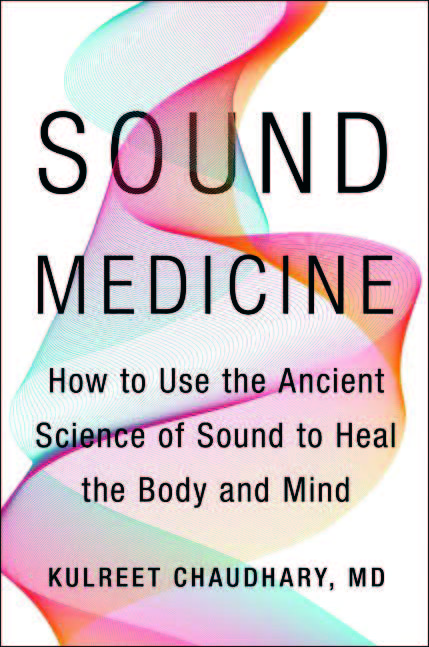Have you ever noticed how your state of mind can impact how you feel physically? When you’re happy you feel great and when you’re stressed or emotionally distraught, your stomach gets upset or you feel physically exhausted.
Mood is a complex physiological experience. It is the result of the intermingling of neurochemistry, gut health, hormonal balance, and social/ psychological experience. It is a moment-by- moment litmus test of how much your life is in alignment with the needs of your body, mind, and spirit.
The Gut-Brain Connection
We tend to think external circumstances determine our mood. But, in reality, our internal harmony determines how we perceive, interpret and respond to our external circumstances.
There are many things that can lend to a bad mood:
• Stress (day-to-day, global, etc.);
• Poor diet;
• Isolation from community or family; and
• Not allowing the mind to rejuvenate through meditation.
But one of the most important aspects of mood in Ayurveda medicine (translated to “knowledge of life”) is the way in which food and gut health impact mental health. Mind and gut are inseparable. The foods you eat, and the strength of your digestion determine the quality of your thoughts and mind.
In Ayurveda, the health of our mind plays a powerful role in the health of our body. That’s because Ayurveda approaches the mind and body as a whole—there is no part of our mind and body that functions independently of the other. Whatever happens in one part of the mind-body unit impacts our whole system. It’s a beautiful system that begins with the acceptance that our mental and emotional health is inseparable from our physical health and we start by acknowledging this inner connectedness.
Modern medicine is just beginning to grasp this concept, most notably in the research on the impact the gut microbiome has on our overall health, particularly the brain. The term gut-brain connection is often used to explain the intricate relationship between the digestive system and the brain, but this language is limiting because of the assumption that the gut and brain are two different functional parts. In reality, the gut and brain are one functional unit.
When the gut-brain connection is disrupted—no matter what else you may add to boost your mood—you’re fighting an uphill battle with brief episodes of transient balance that are easily tipped over. Once you repair the gut-brain unit, you’re floating downstream to a more vibrant and uplifted mood spontaneously, and you’re able to walk towards your future unhindered by the past.
Herbs that Support the Mind and Gut Functions
To help improve chronic mood disorders, Ayurvedic herbs for balancing the mind, such as ashwagandha, brahmi and shankhpushpi, are used simultaneously with herbs that strengthen digestion, such as triphala, ginger and cumin.
Triphala is one of my all-time favorite herbs for the gut-mind axis. It has traditionally been used to heal the mucosal lining and the nerves in the gut to promote normal peristalsis.
Instead of forcing the colon to expel its contents, triphala helps the colon do what it is naturally supposed to do. Your gut remembers how it is supposed to work because triphala is repairing the injury. It also gently detoxifies the gut and entire body on a regular basis, which prevents the accumulation of harmful substances that negatively impact mood.
Life can be stressful, and those stresses send a lot of signals that interfere with digestion, so triphala is like a rescue boat for modern life.
Healing Tea
Along with taking these herbs, there is something you can do right in your kitchen to boost your mood. My favorite go-to mood enhancer is Prime Tea, which has been used for thousands of years by Ayurvedic practitioners for physical and mental balance. It is a simple recipe that invigorates the gut, which then directly supports a healthy mind. Simply follow the recipe below:
- Boil 4 to 5 cups of water in the morning.
- Add ½ tsp of whole organic cumin seeds, coriander seeds and fennel seeds to the hot water and boil again for at least 10 minutes with the lid on.
- Strain out the seeds and pour the liquid into an insulated container. Sip the liquid throughout the day. Start fresh with a new batch of tea each morning.
Seeds of Wisdom
Sometimes in our pursuit of physical health, we can forget the impact that mental health has on our body, career and relationships. Mental suffering can steal the joy of life completely.
Mental health isn’t a luxury; it is as important as heart health, metabolic health, colon health, and brain health. In fact, mental health directly impacts conditions such as heart disease, diabetes, inflammatory bowel disease and memory issues.
In Ayurveda, mood and gut health are inseparable. Without addressing gut health, you can spend years searching for mental health solutions with limited or insubstantial results. When the mind and gut are addressed simultaneously, a brighter mood not only feels feasible, it feels like a spontaneous outcome from a stronger digestive system.
The science of mental health and the gut microbiome is only now emerging. But this undeniable connection between gut and brain has been understood for thousands of years, and mental health solutions have been perfected in Ayurveda. Sharing this seed of wisdom about coordinating healing of the mind with the gut, from the ancient science of Ayurveda, allows us all to immediately reap the harvest of a happier today.
 Dr. Kulreet Chaudhary, MD is a neurologist, neuroscientist and an internationally recognized expert in the ancient practice of Ayurvedic medicine. Chaudhary is the author of The Prime (Penguin Random House, 2016) and Sound Medicine (Harper Collins, 2020); is a pioneer in the field of integrative medicine and is a highly sought-after speaker, researcher and adviser for Healthy Directions. She is the former director of Wellspring Health in Scripps Memorial Hospital, where she successfully combined conventional treatments with Ayurvedic practices of detoxification, diet and lifestyle management to help patients effectively manage chronic neurological disorders such as multiple sclerosis, Parkinson’s disease and migraine headaches. Learn more at DrKChaudhary.com. Twitter: @DrKChaudhary https://www.facebook.com/drkulreetchaudhary.
Dr. Kulreet Chaudhary, MD is a neurologist, neuroscientist and an internationally recognized expert in the ancient practice of Ayurvedic medicine. Chaudhary is the author of The Prime (Penguin Random House, 2016) and Sound Medicine (Harper Collins, 2020); is a pioneer in the field of integrative medicine and is a highly sought-after speaker, researcher and adviser for Healthy Directions. She is the former director of Wellspring Health in Scripps Memorial Hospital, where she successfully combined conventional treatments with Ayurvedic practices of detoxification, diet and lifestyle management to help patients effectively manage chronic neurological disorders such as multiple sclerosis, Parkinson’s disease and migraine headaches. Learn more at DrKChaudhary.com. Twitter: @DrKChaudhary https://www.facebook.com/drkulreetchaudhary.




















